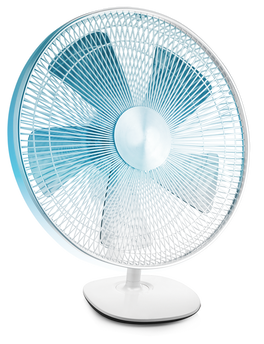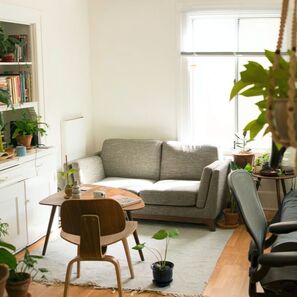 Photo by Demton on CleanPNG Photo by Demton on CleanPNG Keeping cool in a non-air conditioned apartment during the summer can be challenging, especially on those sweltering hot days. However, there are several ways to stay comfortable and cool without the luxury of an AC unit. Below are five tips to help you stay cool during summer days and nights.
Use the comments below to share with us how you are keeping cool without AC this summer.
2 Comments
 Photo by Alex Green on Pexels.com Photo by Alex Green on Pexels.com Renters often overlook the importance of insurance, assuming their landlord's insurance policy will cover any damages or losses. However, it's crucial for renters to have their own insurance to protect themselves and their belongings in case of unforeseen events like theft, fire, or natural disasters. A renters insurance policy can provide coverage for personal property, liabilities, and additional living expenses, which can provide peace of mind and financial security in case of an unexpected incident. Having renters insurance can also cover liabilities resulting from accidents that occur in the rental property. If a guest gets injured during a visit or somebody's property gets damaged, a renters insurance policy can help you avoid costly lawsuits and legal expenses. This type of coverage can provide financial protection against liability claims and can help protect a renter's personal assets.  Photo by Armin Rimoldi on Pexels.com Photo by Armin Rimoldi on Pexels.com Another important aspect of renters insurance is the personal property coverage it offers. Renters often underestimate the value of their personal belongings and underestimate the cost of replacing them. A renters insurance policy can not only cover the cost of replacing lost or damaged items but also provide temporary housing and additional living expenses until the renter can find a new home. In short, renters insurance is an affordable way to safeguard against loss and protect a renter's financial future.
 Photo by Dimi Katsavaris on Unsplash.com Photo by Dimi Katsavaris on Unsplash.com Homelessness is a growing concern around the world, and its effects can be devastating. Being without a permanent place to call home can lead to physical and mental health issues, lack of stability, and limited access to basic necessities like food and water. It's crucial for individuals and families to have a stable and secure place to live, which is why agencies like ours exist - to help those in need. Emergency shelter is an important step towards getting individuals off the streets and into a safe and stable environment. It's a temporary solution that provides a roof over someone's head, along with basic necessities like food, clean water, and hygiene facilities. However, it's not a long-term solution. Having a permanent place to call home is essential for individuals to rebuild their lives, find employment opportunities, and create a stable future for themselves and their families. Here at CAPECO, we understand the importance of housing and work towards finding permanent solutions for our clients. Our initial goal is to help individuals transition from homelessness or emergency shelter to more permanent housing options, whether it's through rental assistance, financial counseling, or support in finding a job. We want to provide resources that will help our clients succeed and thrive, both now and in the future. If you or someone you know is experiencing homelessness, please reach out to us for help. We are committed to providing the resources and support necessary to ensure that everyone has access to safe and stable housing. Together, we can work towards ending homelessness and creating a brighter future for everyone. Additional Resources
Whether you're a first-time renter or a seasoned pro, you may want to ask prospective landlords some key questions before you sign a lease to rent an apartment or house. Here are some questions to ask before signing a lease. 1. How long is the lease term?
A lease is usually 12 months, according to Consumer.gov. But some landlords and management companies may offer lease terms from 6 months up to 18 months, says Time. You may want to ask your prospective landlord whether the rental agreement's lease term is flexible. If you can sign a longer-term lease, a management company may be able to offer a monthly discount on the rent, states Time. 2. What's included in the rent? Make sure to ask the landlord and management company what utilities are included in your rent, says Trulia. Get specific and ask exactly which utilities you're responsible for and what the landlord will cover. You may also want to consider asking about amenities like parking, lawn care, storage and pool access, says Trulia. Depending on the rental, you may have additional fees for these types of services and amenities. 3. When is rent due and how do I pay it? Each landlord and management company is different, so make sure to confirm their specific rental payment process. Ask when and how you can submit rent and if there are any late fees if you miss a payment, says Apartment Guide. Also, if you're looking to move in the middle of the month, consider asking the management company if they'll prorate the rent so you only pay the amount of rent for the time you're actually living in the unit, says Trulia. For example, if your rent is $1,200, but you move in the middle of the month, the prorated rent for that month may be closer to $600. 4. Is the security deposit refundable? Generally, security deposits are refundable if you do not break the terms of your lease and there is no damage to the unit. If you do break your lease or leave damage in your rental, your landlord may keep all or part of your security deposit to help cover those expenses, says Consumer.gov. 5. Is renters insurance required? Landlords and management companies may require tenants to have renters insurance. A renters insurance policy helps cover your belongings if they're stolen or damaged by a covered peril, such as a fire. Renters insurance can also provide liability coverage that helps protect you financially if you're found legally responsible for someone else's injuries or damage to their property. Consider speaking with your insurance company to find out what coverages fit your situation. 6. How much notice do I give before vacating? Typically, the lease agreement specifies how much notice you need to give a landlord or management company before moving out of the property. It can vary from one to three months, so make sure to confirm this information before signing the lease, says Trulia. 7. What's the penalty for breaking my lease? The penalty for breaking a lease can vary depending on state laws and the individual landlord or property manager. Some penalties may include forfeiting your security deposit, paying several months of rent or paying a percentage of the amount of rent left in your lease term, says Trulia. It's a good idea to read over your lease to understand what happens in case you need to move sooner than you anticipated. 8. Is there emergency maintenance? Before signing a lease, ask what sort of emergency maintenance the landlord offers, says Apartment Guide. Find out how you can access the 24/7 maintenance crew in case something happens. Also, make sure you know the procedure for submitting general maintenance requests for your unit. Get confirmation on how long it normally takes for those requests to get resolved. 9. How much notice will they give before entering my rental space? Check your lease to see if your management company or landlord lists a specific notice time for entering your rental for maintenance requests. Generally, landlords give tenants at least 24 hours' notice before entering your rental unit, says The Balance. 10. Is there any known construction planned for the building (or nearby)? Depending on the rental and its location, you may want to ask if any construction is planned for the apartment complex or nearby area, says Trulia. This can help you decide if you want to live in an area with pending construction. 11. Are pets allowed? Landlords and management companies can vary in their pet policies, says Apartment Guide. You might be looking at a rental that only allows cats, or maybe they only allow small dogs. No matter what the pet policy is, be sure to ask if there are any nonrefundable deposits or pet rent you may have to pay during your lease term. 12. What's the guest policy? Similar to the pet policy, landlords have varying rules for overnight guests, visitors or even extended stays, says Apartment Guide. Be sure to read over your lease terms to know the specific guidelines you need to follow. Asking your prospective landlord or management company these questions can help make your renting experience a little easier. Chris Baskin writes to help others live more simply explaining ways for renters to stay cool and save money this summer. In an article from October 2022, when he wrote for Treehugger.com, he wrote about ways to stay cool and save money during the summer.
Follow the link below to learn more. |
Housed
Whether you are a home owner or renting a place we strive to make this a place you can visit to find ways to stay safe, healthy, and happy while Housed. Categories
All
|


 RSS Feed
RSS Feed
